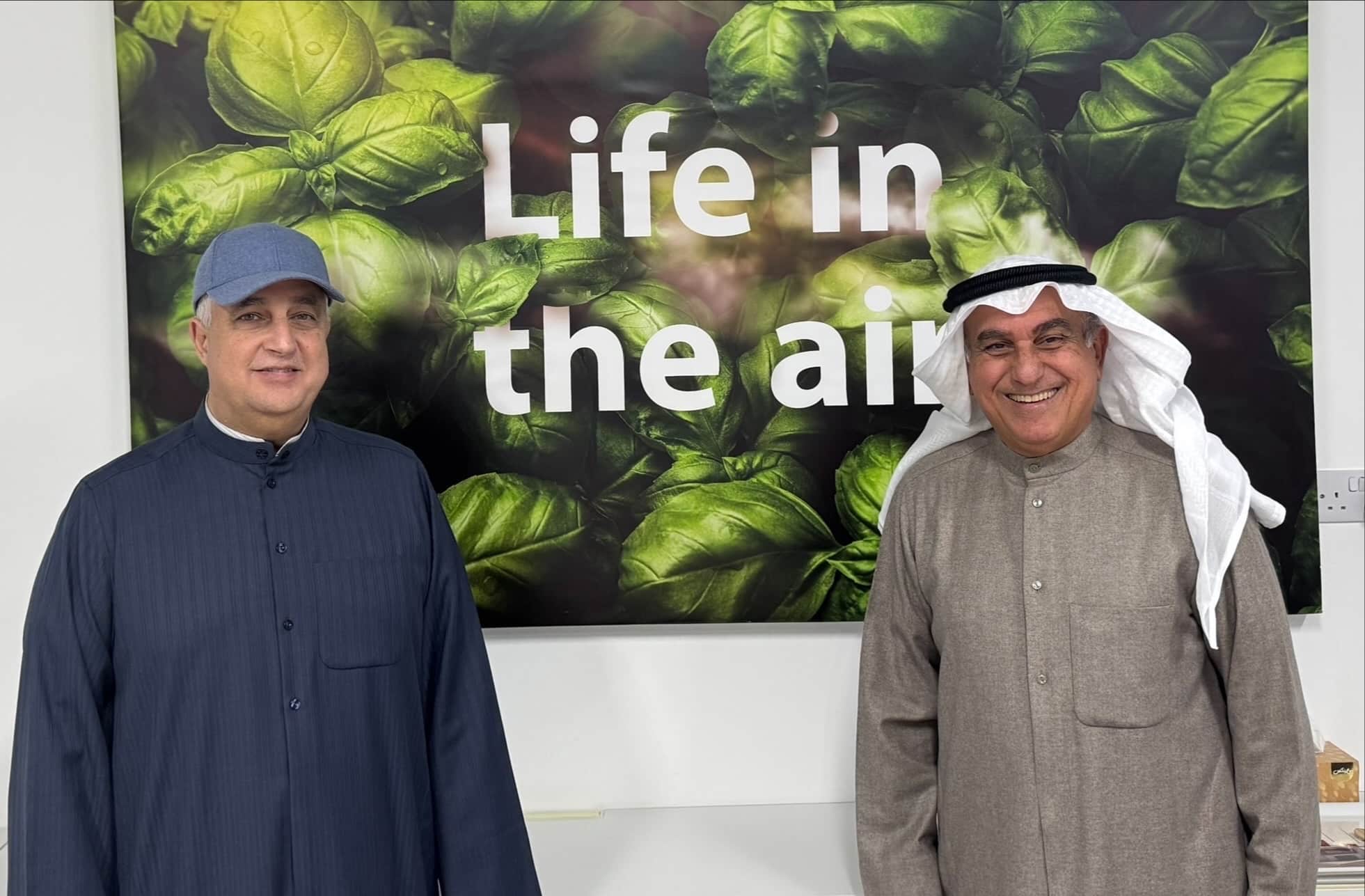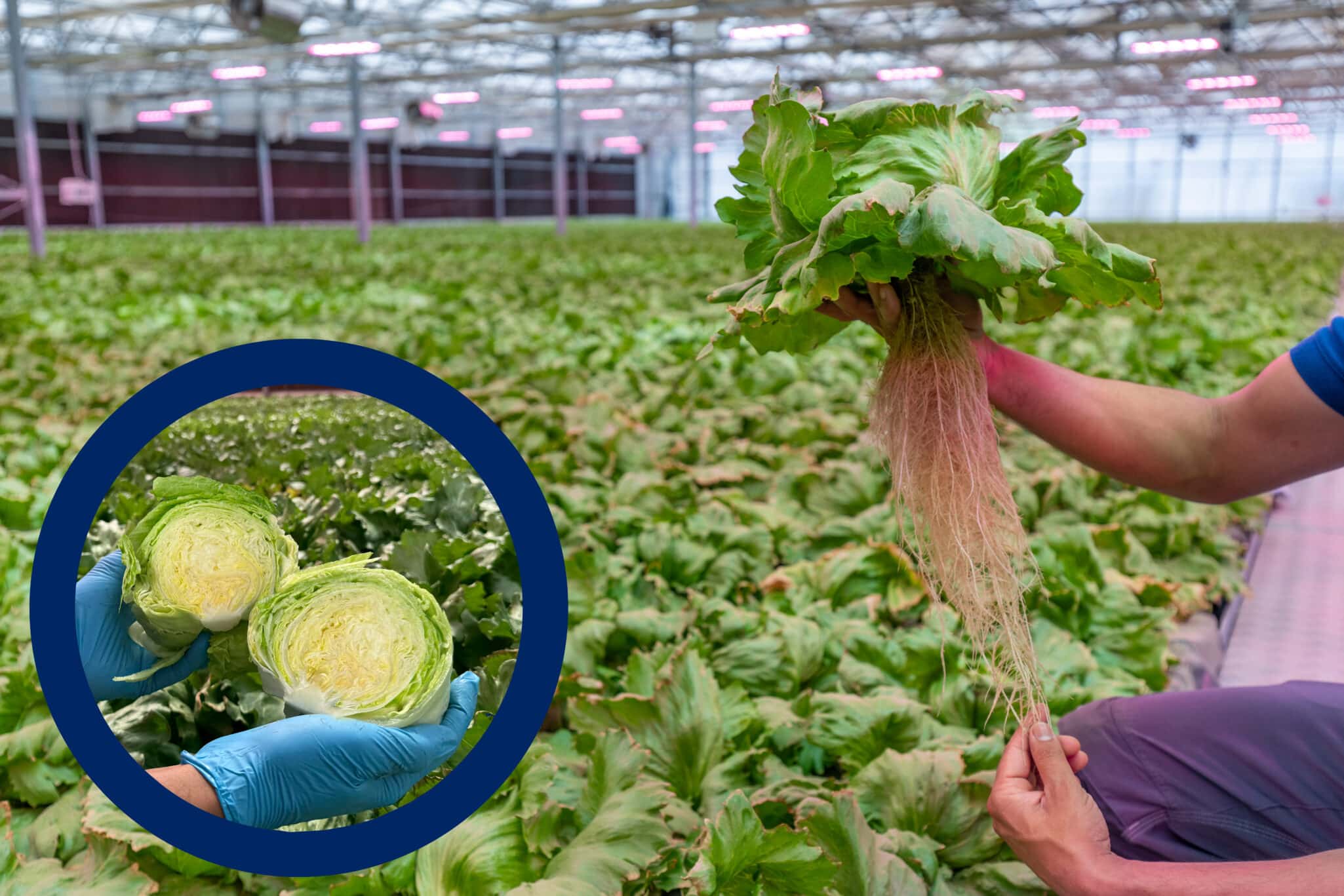Key Takeaways:
- GreenLife partnered with Swiss firm CleanGreens to launch Kuwait’s first aeroponic farm, adapting high-tech European systems to local desert conditions.
- The system produces up to 900 kg/day of lettuce while using 96% less water than traditional farming and 60% less than hydroponics.
- With previous zero agronomic experience, the team built and commissioned the facility in two years and obtained GAP certification in 2024.
- The aeroponic system’s scalability and year-round output present a potential model for food security across the GCC.
- Expansion plans are underway, backed by investor confidence and strong interest from regional stakeholders.
GreenLife Origins: When Aeronautical Engineering Meets Agriculture

Adel Al Shamali’s transition from aviation and retail to agriculture wasn’t planned—it was serendipitous. A former executive with over two decades of leadership at IKEA and Kuwait Airways, Al Shamali’s curiosity was sparked when he met the then-CEO of Swiss agtech company CleanGreens. The conversation turned to aeroponics—an unfamiliar term at the time—and within two days, Al Shamali was touring the company’s R&D facility in Molondin, Switzerland.
“I was shocked to see such a standard,” Al Shamali recalled. “It was modular, required less manpower, and had a continuous daily production cycle. Compared to traditional and even vertical farming models, it offered real control.”
This encounter planted the seed for GreenLife, a Kuwaiti company co-founded by Al Shamali and Tareq Almazeedi, a long-time friend with a background in finance and telecom. Despite having no prior experience in agronomy, the duo embarked on a mission to launch Kuwait’s first commercial aeroponic farm.
GreenLife Adapts Swiss Tech for the Desert
CleanGreens' aeroponic system—designed in Switzerland for high efficiency and sustainability—proved highly adaptable to the harsh climate conditions of Kuwait. The core of the system involves growing crops without soil or traditional substrates, using a misting technology that delivers nutrients directly to the roots in a controlled environment.
But applying Swiss-engineered technology to desert agriculture wasn't straightforward.
“In Switzerland, the systems are built to withstand cold,” said the GreenLife co-founder. “We needed to adapt it to handle extreme heat, mineral-heavy water, and soil that isn’t farmable. The success of this adaptation is a testament to the system’s flexibility and engineering.”
The CleanGreens system delivers measurable benefits:
- 24 times the yield per m² compared to open-field agriculture
- 90 kg/m²/year
- 800–900 kg/day of Lollo lettuce and 600–700 kg/day of iceberg lettuce
- Zero pesticides used across the production cycle
- 96% less water than traditional field farming
- 60% less water than hydroponics
- 365-day production, regardless of outdoor temperatures exceeding 50°C
Learning by Doing: GreenLife’s First Build
The GreenLife team built the project from the ground up over a two-year period. Suppliers came from over eight countries, including the Netherlands (for climate control), China (for greenhouse structures), and Switzerland (for CleanGreens' core systems).
“If we had known everything from the start, we could have built it in a year,” said Al Shamali. “But we were learning every step of the way.”
From light recipes to nutrient balances and air circulation, every detail had to be understood and implemented. The team even discovered that ordering incorrect modules or lighting specs could result in months of delays.
Despite the steep learning curve, GreenLife emerged not only with a functioning farm but also with a competitive edge. “Now, with our experience, we could set up a new facility in 12 to 14 months,” Al Shamali stated confidently.
Data-Driven Farming and Market Insight
GreenLife didn’t stop at growing crops—it studied the market. The team reviewed import data to identify what types of leafy greens were being brought into Kuwait, from where, and in what volumes. They consulted chefs, retailers, and consumers to understand product preferences, price sensitivity, and volume requirements.
“We found that demand was high for certain varieties—like Lollo and Iceberg lettuce—especially those with good shelf life and crunchiness,” said the team. “Thanks to the CleanGreens system, we can control every aspect of growth: light, water, nutrients, humidity. This makes product consistency and adaptability much easier.”
Aeroponically grown lettuces have clean, white roots—a detail that left local visitors and international stakeholders “shocked,” according to Al Shamali.
GAP Certification and Open Knowledge
In August 2024, GreenLife became the first farm in the GCC to achieve GAP certification for its leafy greens and herbs.
The project has since attracted interest from researchers, educators, and policymakers. “We’ve opened our doors to Kuwait University, the Kuwait Institute for Scientific Research, and even competitors,” said Al Shamali. “We share what we’ve learned. This system isn’t easy to replicate—but it’s worth understanding.”
Visitors from embassies, universities, and ministries have all been impressed by the farm’s performance. One recent event ran well over time due to strong interest in food security and water efficiency.
GreenLife Scaling Up with CleanGreens Technology
With Phase 1 now operational, GreenLife is expanding. Following the success of its 7,500m² aeroponics facility, Phase 2 will add 16,500m² of CleanGreens’ systems—reaching a total of 24,000m².
“We have been using CleanGreens technology for 2 years in operations, we have got very positive, even impressive experience, we learned and developed a lot, confirmed the business model and we have decided to expand our project to supply exceptional quality greens to our customers across the region. This technology is the future!” said Al Shamali.
“We are proud to collaborate with GreenLife on this historic expansion. GreenLife is an amazing partner. They have done a tremendous job analyzing the market’s needs, operating the farm, validating the business model in the region. The upcoming 24,000m² aeroponics greenhouse will be the world’s largest aeroponics farm!” stated CleanGreens Solutions.



